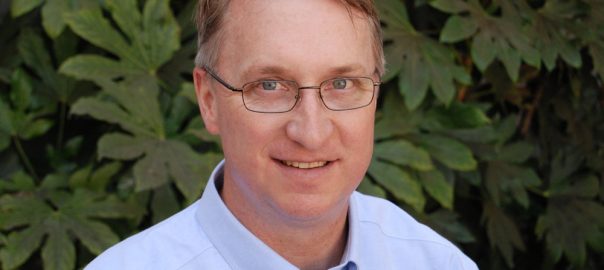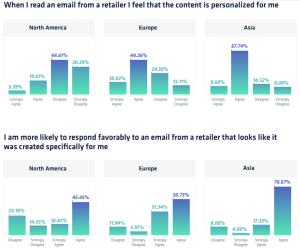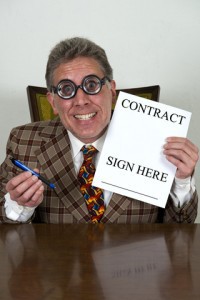
Photo provided by John Foraker & Annie’s
Without a doubt, our middle child was our most challenging. If her mind was made up, and it was bent on a certain outcome that her mom and I were opposed to, we knew it was sure to leave a mark.
We called ages 4-6 the “Mac and Cheese” era. Our middle one was no easy child. We may have been a little idealistic, but we really wanted to have our kids eat healthy food. For the most part, we stayed strong, but we had our weak moments. Out of self-preservation, we would acquiesce and buy that little blue-and-yellow box of peace and quiet. That was until our life changed. I was walking down the aisle of the local natural foods store and I saw it! Like a beacon in the night, there was Annie’s Homegrown Mac and Cheese.
I was eager to interview John Foraker, president and former CEO of Annie’s (on Twitter @AnniesCEO). Not just because his company’s flagship product saved our parental sanity. He is a legend in the natural foods industry, although, I am sure he would not want to be referred to as such. John blends a fierce competitiveness with a deep commitment to sustainability and social responsibility. He is an innovator who, in addition to leading Annie’s, also serves as an advisor for its parent company General Mills’ small-business incubator 301 Inc.
As you read, you will learn that John is a really humble guy, at peace with his flaws, interested in making a difference and winning.
What keeps you up at night?
“Man, that is a really hard question to answer. I have two schools of thought and sometimes they conflict.”
He is right, they do conflict, but I get it, and I can see how they fit together. His first school of thought is aligned with his drive to win and be an innovator. He worries about staying ahead of consumers’ wants, and “driving a positive impact.”
These are the big heady worries, the ones that every leader needs to think about and consider. His second school of thought is to not worry.
“I’ve learned over time, really as a human, but as a leader too, that 99% of the things I worry about never actually happened.”
He said, “I got pretty Zen about it”. He tries to focus on the “things that move us forward”. He reframes worry as an opportunity. “If I hadn’t, I would have gone crazy.”
How much do you share your fears, worries, and insecurities?
Early in John’s career, he felt that he overshared. “People saw my fear and insecurity. I was sharing too much. I was undermining their motivation and making them afraid.”
Then, as too often happens, he went too far in the other direction. He went through a period of keeping to himself, but “I didn’t connect with people; I didn’t get buy-in”. He eventually found his sweet spot. Today, he is pretty transparent. His approach is to now say, “Here are the challenges we face, here is how I feel about them, here is the opportunity for us, and here is how we are going to conquer them together.”
What happens when you are wrong?
“I’ve made every mistake possible, well not every mistake, because I am sure I will make some more.”
We spent a lot of time on this question. “I am all about owning failure and poor decision making and being accountable. If I am not, how do I hold others accountable and encourage them to take risks?”
He went on to explain that “if I am wrong, I tell my team. ‘here is why I made the decision, here is what I learned, and here is how we are going to fix it.’ To me, that is the only way to lead.”
This is about culture. “You can’t be a fast-moving, innovative, game-changing kind of a company if you’re not willing to lean in, make decisions, and sometimes be wrong.”
What are some of the surprising burdens of leadership?
“Being a leader has its burdens.” He added, “Every single job has its burdens.” I could hear the strength of his conviction in his voice. He told me earlier in our conversation that he leads by “making people aware that I am no different from anyone else. I am exactly them. I am not all that special.”
He continued, “I am not one who believes that leaders should bemoan the fact that they have this big tough job, and they are making all these sacrifices to lead. It is an honor and a privilege to lead, you have the opportunity to change the world.”
What have you learned about connecting and motivating people”?
“It’s all about connecting with people on a human level. If I can do that, and it works, there is no better way to drive commitment, motivation, and great performance than to show people that you understand and respect them as human beings. That you want them to win and be happy.”
He added that “Authentic leaders tend to attract authentic people who want to work with them.”
There is a list of core principles for working at Annie’s. One of those core principles is “to not be an asshole.” I would vote that we should all live by that one.
What drives you to do this?
“The most important thing is having fun, making an impact, and really leaving the world a better place.”
He paused for a moment and then, almost apologetically. added, “I know that sounds really corny.” But, having the benefit of hearing the words spoken, I can tell you that they rang very true.
That was it, John was off and running to his next meeting. As we closed, I asked him who has been his greatest teacher. “My wife, Beth,” he said. I could tell by the sincerity in his voice, that it was important I record that part of his story, and it is my honor to do so.
Business & Finance Articles on Business 2 Community(75)
Report Post




